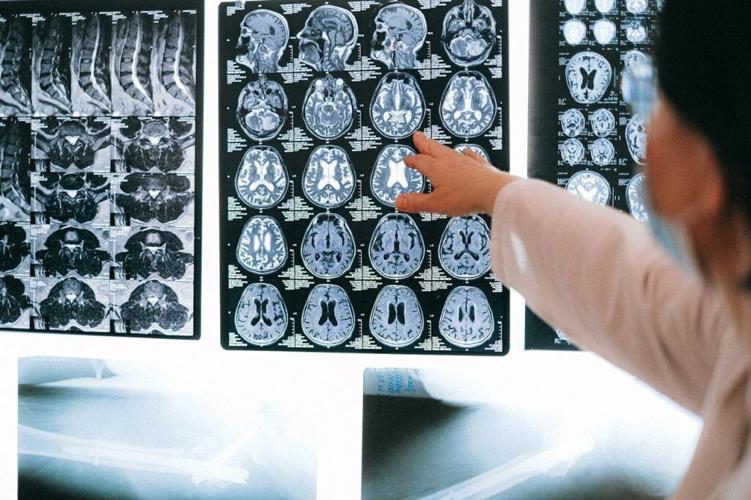
(Photo by Anna Shvets via Pexels)
By Stephen Beech
Quicker and more accurate concussion tests can now be conducted - thanks to AI technology.
A new portable device has been developed using machine learning to spot possible concussions through walking, balance and reaction-time tests.
The Mizzou Point-of-Care Assessment System takes the "guesswork" out of concussion assessments, say scientists.
On-field concussion tests are now a regular feature in sports including football, cricket and rugby.
But doctors say spotting a concussion can be difficult after a potential head injury as asking the patient if they feel dizzy or have a headache relies on self-reporting, which isn’t always accurate.
Professor Trent Guess, from the University of Missouri College of Health Sciences in the United States, along with doctoral student Jacob Thomas, set out to solve the problem.
They’ve developed the new portable system that uses machine learning to track body motion and detect possible signs of a concussion — offering a more objective way to identify injuries in real time.
While most concussion-testing machines are expensive and only available in specialised labs, they say the Mizzou Point-of-Care Assessment System is "affordable and portable," - making it more accessible to the general public in a variety of settings.

Mizzou Point-of-Care Assessment System. (University of Missouri via SWNS)
The portable system combines a force plate, a depth camera and an interface board.
It was used in a study, published in the journal Medical Engineering & Physics, to test the movement, balance and reaction times of 40 college athletes, 20 of whom had recently been diagnosed with a concussion.
The system’s portability allows it to be useful in a variety of clinical settings.
By using machine learning - a process where a computer looks for patterns in data to make better-informed decisions - the portable system was able to quickly learn the difference between someone who is healthy and someone who has a concussion.
For example, those with a concussion were more likely to have slower reaction times, walk more slowly, and struggle more with maintaining their balance, particularly when asked to complete tasks with their eyes closed or while counting backwards from 100 in intervals of seven.
Professor Guess said, “Going forward, we can have individuals take the assessment when they are healthy to establish a baseline.
"This is where the machine learning comes into play.
“Then, if they sustain a possible concussion in the future, taking the same assessment again and comparing the results with the baseline data helps us know if the individual’s movement and motor control were impacted by possible cognitive damage.”

(Photo by KATRIN BOLOVTSOVA via Pexels)
Guess, whose background is in engineering and biomechanics, is the director of the Mizzou Motion Analysis Centre, a state-of-the-art lab in the College of Health Sciences.
He said: “Mizzou is a great place for this research because of the opportunities I have to collaborate with clinicians who have expertise in orthopaedics, physical therapy, sports rehabilitation and exercise science.
“In their clinical settings, they often work with a variety of patients and see the need for a better way to assess potential concussions, and with my engineering background, I knew I could help develop a portable system to help meet the demand.”
While college athletes were the subjects of the study, Guess says the Mizzou Point-of-Care Assessment System could also help assess potential concussions for individuals working as first responders, military personnel or in other professions with a higher likelihood of head injuries.
While a small number of the portable systems are currently being tested for research purposes, Guess hopes they can one day be manufactured at a larger scale before being used in a variety of clinical and athletic settings.
He added, “This portable system can also be a helpful tool in measuring an individual’s recovery after a concussion.
“The last thing you want is to send someone back out on the field or into a work environment when they are not ready.
"Hopefully, our efforts can help people stay as safe as possible.”























(0) comments
Welcome to the discussion.
Log In
Keep it Clean. Please avoid obscene, vulgar, lewd, racist or sexually-oriented language.
PLEASE TURN OFF YOUR CAPS LOCK.
Don't Threaten. Threats of harming another person will not be tolerated.
Be Truthful. Don't knowingly lie about anyone or anything.
Be Nice. No racism, sexism or any sort of -ism that is degrading to another person.
Be Proactive. Use the 'Report' link on each comment to let us know of abusive posts.
Share with Us. We'd love to hear eyewitness accounts, the history behind an article.